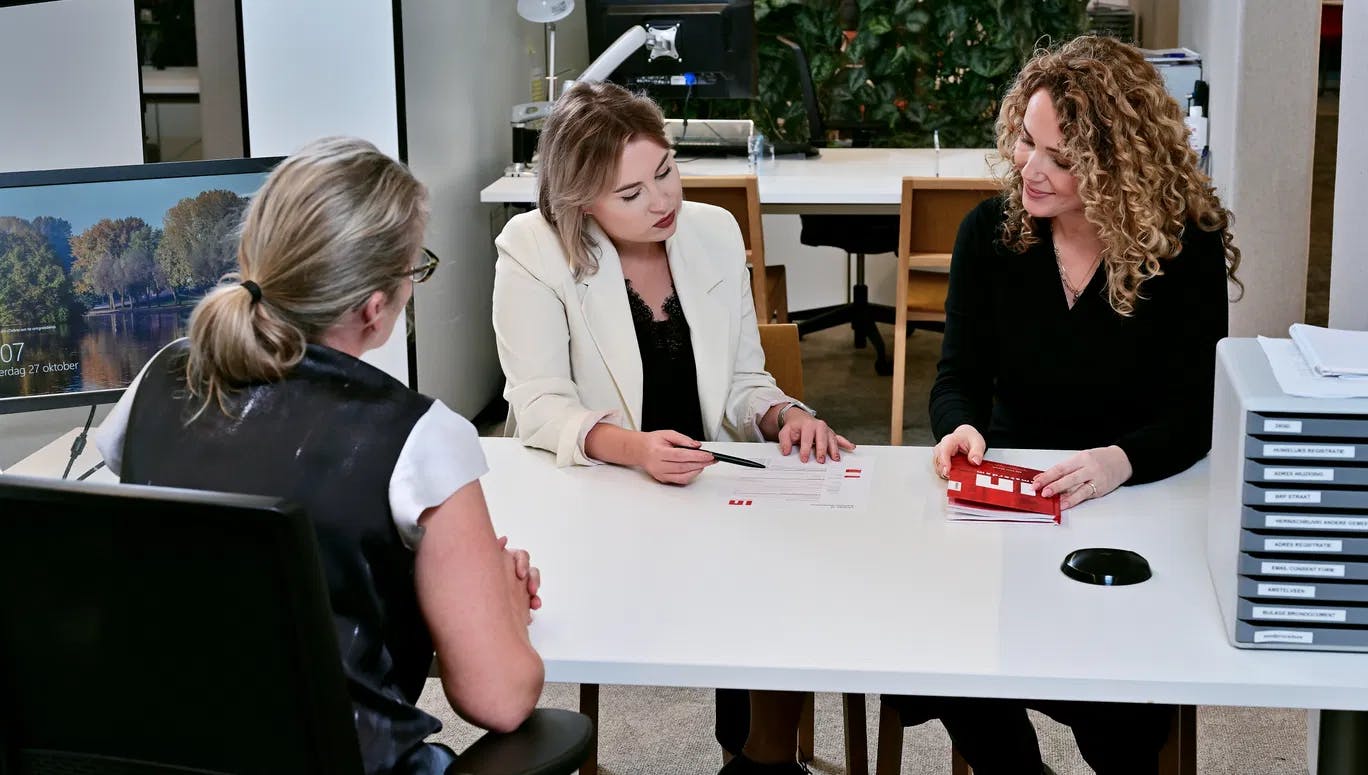Visas and permits for employees
There are a variety of visas and residence permits that make it a relatively simple process for businesses to hire international talent in the Netherlands.
Hiring talent from abroad
While Amsterdam has a strong, internationally-oriented labour pool, you might need to hire specialised employees from abroad. If the person you want to hire is not a citizen of the EU, EEA or Switzerland, and they aren’t already living in the Netherlands, they will likely require a work or residence permit. This must be requested by the employer. Read on to learn more about the different visas and permits for living and working in the Netherlands.
Visas for international employees
Does your employee need a visa to enter the Netherlands? If they are from a country outside of the EEA, the answer is ‘possibly’, depending on their nationality. A short-stay Schengen visa is valid for stays of 90 days or less. For stays of more than 90 days, an MVV will be required. The quickest way to find out if your employee needs either of these visas is to use the Netherlands' Visa Advisor tool.
Getting started with residence and work permits
If you want to hire a foreign employee for less than 3 months, provided they have a valid visa, then they may only require a work permit. You can apply for this directly at the Employee Insurance Agency (UWV). If you are hiring talent via an intermediary, the third party must apply for the work permit.
For stays of more than 90 days, employees will also require a residence permit – although in many cases the residence and work permit are bundled in a combined procedure called the TEV or GVVA. For specialist residence permits, such as the procedures for highly skilled migrants or researchers, a work permit isn’t required. Good to know: always keep in mind that most residence/work permits require an employment contract that meets certain conditions, such as fulfilling an annual salary criterion.
Highly skilled migrants
A common path for talent being hired from abroad is the highly skilled migrant permit, which is a simplified migration procedure. Highly skilled migrants who qualify for this visa are exempt from language-learning requirements, may be entitled to a 30% tax ruling (reimbursement to compensate the costs of moving to a new country for work), and can ask their employers to apply for residence permits for family members. A variety of conditions must be met by the employee, and the company hiring them must meet the status of a recognised sponsor or work with an intermediary that already is one. Good to know: an alternative to the highly skilled migrant procedure is the EU Blue Card.
ICT permit
If you are looking to transfer staff from one of your offices outside of the EU, the intra-corporate transferee (ICT) residence permit may be the answer. This route is intended for managers, specialists, and trainees moving to your new office in the Netherlands. Good to know: if your employee qualifies for the ICT permit, it's not possible to apply for a highly skilled migrant visa.
Other common permits
The Orientation Year permit is a popular route for students who’ve graduated in the Netherlands and wish to build their career here. In this case, the potential employee applies for the permit provided they meet the required conditions. Likewise, scientific researchers can apply for a residence permit under Directive (EU) 2016/801.
In 2021, a pilot programme for essential startup personnel was enacted to help innovative companies that require specific expertise. For these businesses, the pilot programme removes or lowers some of the barriers that make the traditional permit procedures more difficult. Entrepreneurs themselves can apply for a startup permit to move to and launch a new company in the Netherlands. It's good to note that this only applies to the founder(s) of a company, not potential employees.
Simplify immigration services with IN Amsterdam
If your company will be based in the Amsterdam Area – specifically in the municipalities of Amsterdam, Amstelveen, Almere, Diemen, Haarlem, Hilversum, Haarlemmermeer or Velsen – IN Amsterdam can help you hire international talent with its simplified immigration procedures. With the name standing for International Newcomers Amsterdam, this local government organisation aims to help companies and their highly skilled migrant employees, scientific researchers, international entrepreneurs, and international graduates. Contact IN Amsterdam to:
- Arrange residence and work permits
- Register employees with the relevant municipality
- Arrange a citizen service number (BSN)
- Apply for the 30% tax ruling
- Apply to exchange a highly skilled migrant’s driving licence
IN Amsterdam also works with non-profits, partners and various organisations to ensure a soft landing in the Netherlands for international newcomers. They do so by providing information about housing, healthcare, employment, finance, and even tips on settling in and connecting with new people in your neighbourhood.
